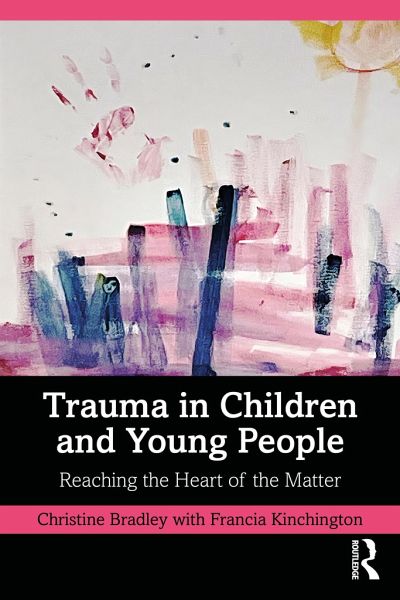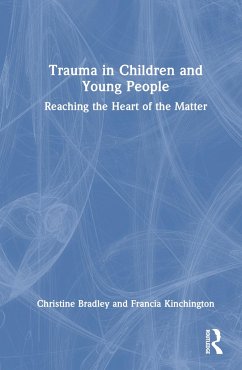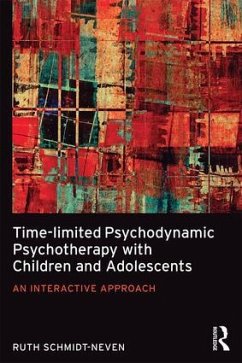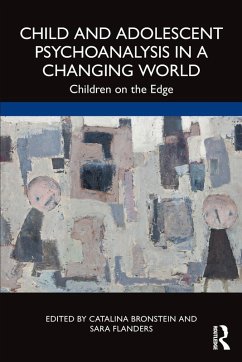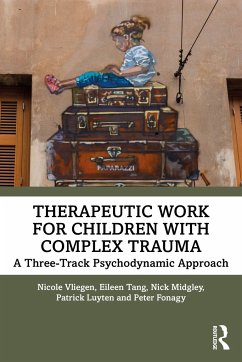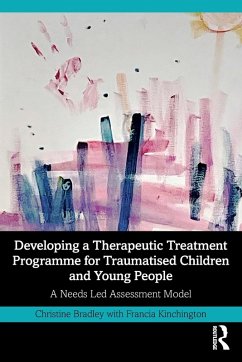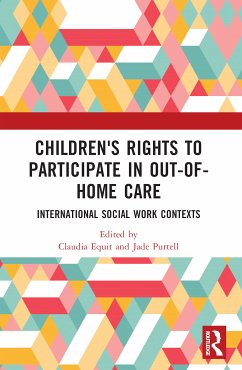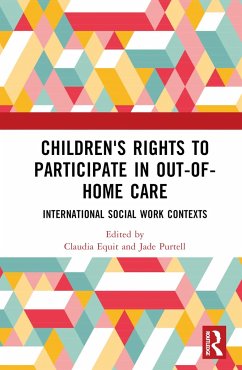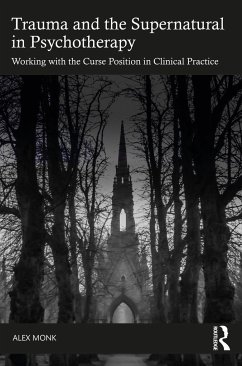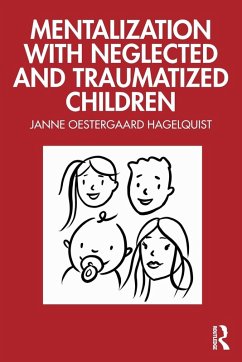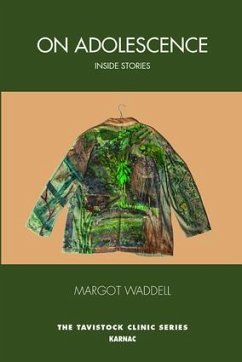Trauma in Children and Young People
Reaching the Heart of the Matter
Versandkostenfrei!
Versandfertig in 1-2 Wochen
Weitere Ausgaben:

PAYBACK Punkte
18 °P sammeln!





This book offers a unique combination of an in-depth examination of attachment, a refined and tested model of Needs Assessment and Therapeutic Treatment plans and applies it to specific contexts including those of children in residential/foster care, young offenders, and unaccompanied asylum-seeking minors.
Christine Bradley has worked with vulnerable children for over 40 years. She was senior officer for LB of Wandsworth and Director of the Caldecott College in Kent, and is a consultant psychotherapist for organizations in residential care, therapeutic communities and adoption/fostering agencies. She is a fellow of Dartington Social Policy Research Unit and has lectured internationally. Francia Kinchington is an education consultant, analyst and editor with extensive international experience and publications and in leadership, psychology and leading change in higher education and schools. Formally a principal lecturer at the University of Greenwich for 25 years, she is an experienced doctoral supervisor and examiner, and a graduate member of the British Psychological Society.
Produktdetails
- Verlag: Taylor & Francis Ltd
- Seitenzahl: 144
- Erscheinungstermin: 3. August 2023
- Englisch
- Abmessung: 234mm x 156mm x 8mm
- Gewicht: 232g
- ISBN-13: 9780367678005
- ISBN-10: 0367678004
- Artikelnr.: 67822158
Herstellerkennzeichnung
Libri GmbH
Europaallee 1
36244 Bad Hersfeld
gpsr@libri.de
'This book was written by a practitioner steeped in therapeutic work with trauma. It offers invaluable insight to professionals working in a range of settings, such as residential units or schools. It is recommended as a guide for both experienced practitioners and those starting to navigate their way in the complex field of trauma and its aftermath.'
Graham Music, PhD, consultant child and adolescent psychotherapist, Tavistock Centre, author of Nurturing Natures and Nurturing Children
'Building on the pioneering work of Winnicott and her own professional experience, Bradley has integrated recent findings to produce a model of practice which offers structure whilst fostering spontaneity
Graham Music, PhD, consultant child and adolescent psychotherapist, Tavistock Centre, author of Nurturing Natures and Nurturing Children
'Building on the pioneering work of Winnicott and her own professional experience, Bradley has integrated recent findings to produce a model of practice which offers structure whilst fostering spontaneity
Mehr anzeigen
and creativity. This framework makes a valuable contribution, enabling practitioners to build a deeper understanding of the children in their care and provide them with the individualised therapeutic care they need to recover from profound early trauma.'
Adrian Sutton, MB BS, FRC Psych., professor, director, Squiggle Foundation, Hon Senior Lecturer in Medical Education, University of Manchester
'Early trauma too often results in lives that are overwhelmed by the challenge of managing life itself. It can lead to life-long destructive behaviour and - as I have seen too often in my work with prisoners - condemns damaged young people to a criminal justice system ill-equipped to do anything but add to their profound and enduring sense of dislocation. There is a better answer, a life-changing answer - effective, proven, therapeutic intervention. This important and urgent book should be required reading for all involved in policy-making and funding decisions around young people, setting out clearly and persuasively what can be done is based on Christine Bradley's four decades of working in the field and the extraordinary results that follow.'
Peter Stanford, writer, editor, and director, the Longford Trust for Prison Reform
Adrian Sutton, MB BS, FRC Psych., professor, director, Squiggle Foundation, Hon Senior Lecturer in Medical Education, University of Manchester
'Early trauma too often results in lives that are overwhelmed by the challenge of managing life itself. It can lead to life-long destructive behaviour and - as I have seen too often in my work with prisoners - condemns damaged young people to a criminal justice system ill-equipped to do anything but add to their profound and enduring sense of dislocation. There is a better answer, a life-changing answer - effective, proven, therapeutic intervention. This important and urgent book should be required reading for all involved in policy-making and funding decisions around young people, setting out clearly and persuasively what can be done is based on Christine Bradley's four decades of working in the field and the extraordinary results that follow.'
Peter Stanford, writer, editor, and director, the Longford Trust for Prison Reform
Schließen
Für dieses Produkt wurde noch keine Bewertung abgegeben. Wir würden uns sehr freuen, wenn du die erste Bewertung schreibst!
Eine Bewertung schreiben
Eine Bewertung schreiben
Andere Kunden interessierten sich für




